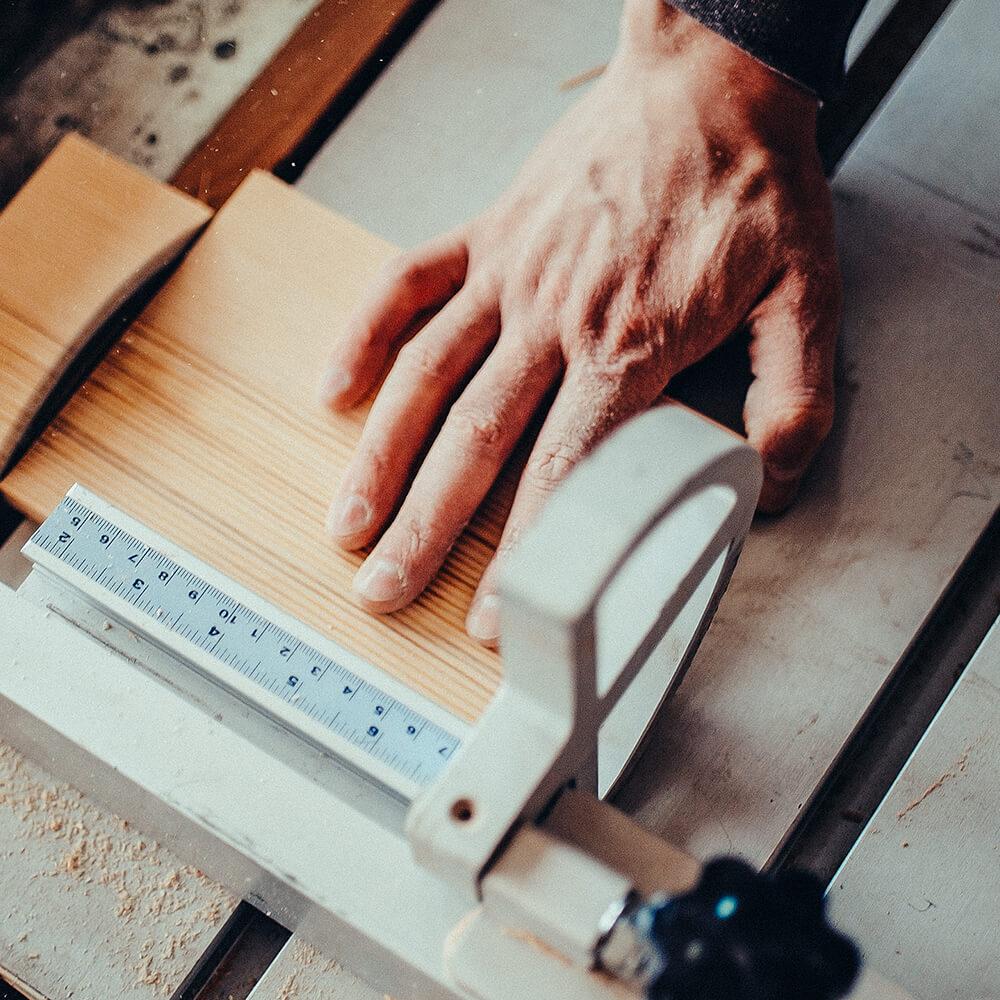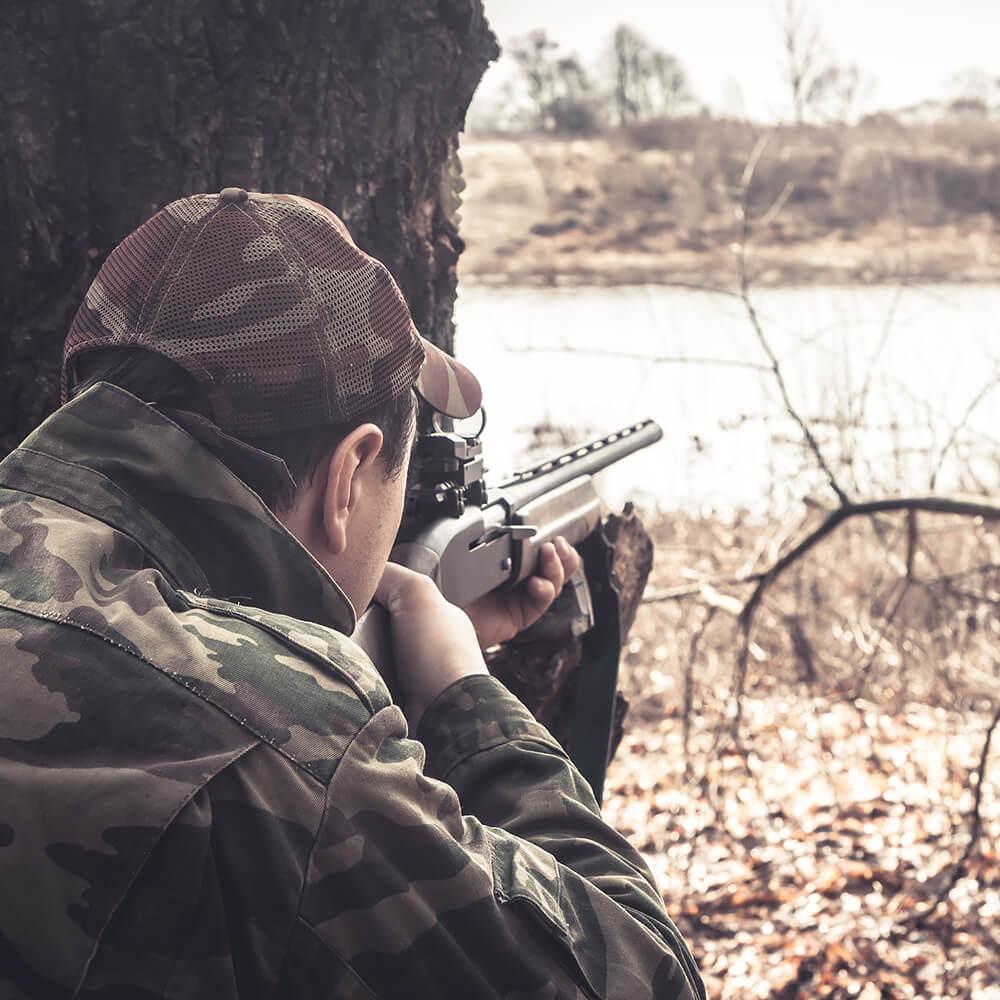Custom Hearing Protection
Hearing Protection & Noise
Why You Need Hearing Protection
Loud noise can be very damaging to hearing. Both the level of noise and the length of time you listen to the noise can put you at risk for noise-induced hearing loss. Noise levels are measured in decibels or dB for short. The higher the decibel level, the louder the noise. Sounds that are louder than 85 dB can cause permanent hearing loss. The hearing system can be injured not only by a loud blast or explosion but also by prolonged exposure to high noise levels.
How loud is too loud?
The noise chart below lists average decibel levels for everyday sounds around you.

| Painful | Extremely Loud | Very Loud | Moderate | Faint |
|---|---|---|---|---|
| 150 dB = fireworks at 3 feet | 110 dB = maximum output of some MP3 players, model airplane, chain saw | 80–90 dB = blow-dryer, kitchen blender, food processor | 60 dB = typical conversation, dishwasher, clothes dryer | 30 dB = whisper, quiet library |
| 140 dB = firearms, jet engine | 106 dB = gas lawn mower, snowblower | 70 dB = busy traffic, vacuum cleaner, alarm clock | 50 dB = moderate rainfall | |
| 130 dB = jackhammer | 100 dB = hand drill, pneumatic drill | 40 dB = quiet room | ||
| 120 dB = jet plane takeoff, siren | 90 dB = subway, passing motorcycle |
(Retrieved from www.noisyplanet.nidcd.nih.gov/parents/athome.htm and www.lhh.org/noise/facts/environment.html.)

How can I tell if I am listening to dangerous noise levels?
How can loud noise damage hearing?
Understanding how we hear will help you to understand how loud noise can hurt your hearing.
One of the most common bad effects of loud noise on hearing is a permanent hearing loss. This happens in the following way:
How else can loud noise be harmful?
Loud noise can increase fatigue and cause irritability.
Noise can reduce the ability to pay attention to tasks. This is a concern at the workplace when it comes to workers’ safety: The ability to detect faulty equipment operation or warning signals can be reduced. Noise can also reduce productivity.
Noisy backgrounds can make understanding conversation harder. The noise can mask or cover up some of the sounds of speech, making a word like “time” sound like “dime.” More concentration and energy are needed not only to listen and hear over the noise but also to speak louder. As a result, voices can be strained, and laryngitis can develop.
Another common effect of loud sound on hearing is tinnitus. Tinnitus is ringing, buzzing, or other sounds in the ear.
Loud noise can also cause other physical problems, such as:
How can I protect my own or my child’s hearing from loud noise?
The key words are education and prevention!
Dealing with noise and its effects on your hearing is a personal responsibility. The obvious first rule is to avoid loud noise whenever possible. A good rule of thumb is to remember that if you must shout to be heard, then you should avoid the situation.

In typical day-to-day activities, you and your children can be exposed to damaging noise from many sources, such as:

In addition, recreational activities can be sources of damaging noise:
Here are some things you can do:
Cotton in the ears will not work. Hearing protection, such as earmuffs or earplugs, can be purchased at drugstores, hardware stores, or sports stores. Custom earmolds can be made to fit your ears by an audiologist. Learn how to correctly insert the earplugs and earmolds for the best noise reduction.
are placed into the ear canal so that they totally block the canal. They come in different shapes and sizes, or they can be custom-made by taking an impression of the ear. Earplugs can reduce noise by 15 – 30 decibels (DB) depending on how they are made and fit.
fit completely over both ears. They must fit tightly so that sound is blocked from entering the ears. Like earplugs, muffs can reduce noise 15 to 30 dB depending on how they are made and fit.
can be used together to achieve even greater sound reduction. Use of earplugs and earmuffs is recommended when noise exposure is particularly high.
If you don’t have hearing protection, move away from the loud sound. Give your ears a break from the sound. Plug your ears with your fingers as emergency vehicles pass on the road.
Keep personal listening devices set to no more than half volume. Don’t be afraid to ask others to turn down the sounds from speakers. Speak to the movie theater projectionist if the movie sound track is too loud.
Look for noise ratings on appliances, sporting equipment, power tools, and hair dryers. Purchase quieter products. This is especially important when purchasing toys for children.
Some movie theaters, health clubs, dance clubs, bars, and amusement centers are very noisy. Speak to managers and those in charge about the loud noise and the potential damages to hearing. Ask to have the noise source lowered.
Can my ears get used to noise?
Don’t be fooled by thinking your ears are “tough” or that you have the ability to “tune it out”! Noise-induced hearing loss is usually gradual and painless but, unfortunately, permanent. Once destroyed, the hearing nerve and its sensory nerve cells do not repair.
If you think you have “gotten used to” the noise you routinely encounter, you may already have some hearing damage.
